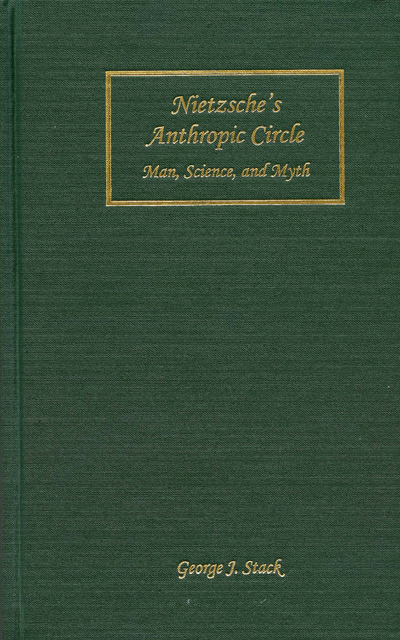Book contents
- Frontmatter
- Dedication
- Contents
- Preface
- Editions and Abbreviations
- 1 Anthropomorphic Projection
- 2 Agnosticism
- 3 A Dynamic Theory of Nature
- 4 Perspectivalism: Knowledge/Interpretation
- 5 Fictionalism in Science
- 6 The Structuralist Perspective
- 7 Evolutionary Epistemology
- 8 Tragic Knowledge and a Will-to-Power Psychology
- 9 The Cosmic Will to Power as Fable
- Notes
- Selected Bibliography
- Index
Preface
Published online by Cambridge University Press: 23 March 2023
- Frontmatter
- Dedication
- Contents
- Preface
- Editions and Abbreviations
- 1 Anthropomorphic Projection
- 2 Agnosticism
- 3 A Dynamic Theory of Nature
- 4 Perspectivalism: Knowledge/Interpretation
- 5 Fictionalism in Science
- 6 The Structuralist Perspective
- 7 Evolutionary Epistemology
- 8 Tragic Knowledge and a Will-to-Power Psychology
- 9 The Cosmic Will to Power as Fable
- Notes
- Selected Bibliography
- Index
Summary
The richness and diversity of what Nietzsche called his “philosophies” make his writings a complex, intriguing philosophical puzzle. He not only defends a perspectival approach to knowledge, but his own multifaceted thought is, in fact, an illustration of this approach to knowledge. It is perhaps for this reason that his evocative works have been subject to so many differing interpretations. The once-popular and distorted understandings of “what Nietzsche said” has long since been surpassed by the restoration of Nietzsche as philosopher. A “new” Nietzsche is discovered. But this assumes that the “old” Nietzsche is thoroughly known and understood. In point of fact, what is often discerned as a new Nietzschean philosophy is but an aspect of, a dimension of, the thought of a many-sided philosopher who eschewed a systematic presentation of his reflections.
In this approach to the thought of Nietzsche, my intention is not to offer a liberal interpretation of his “text” in order to fit him into a predetermined pattern but to attempt to understand his philosophical project, as far as possible, from within. My primary stress is his lifelong preoccupation with the problem of anthropomorphism, his persistent wrestling with the question of knowledge and his reformation of its meaning, his response to a rising scientific culture, and the dynamic theory of the natural world he found intriguing and suggestive of a world-model. I place particular emphasis upon perspectivalism and Nietzsche's modified appropriation of, and critique of, Kant's analysis of knowledge. Finally, I will explore the rationale for his putative reversion to “metaphysics” in the theory of the will to power. All of these themes are interwoven in most of Nietzsche's kaleidoscopic writings. They fuel his skepticism about certainty and objective knowledge even as they stimulate his attempts to create meaning in a world in which the religious interpretation of existence is waning and a powerful culture of science is emerging. They reflect the consequences of the enormous scientific advances since Copernicus that have decentered, demythologized, and diminished the value of the human world.
I emphasize Nietzsche's critique of knowledge because his epistemological attacks on traditional conceptions of knowledge, the idea of transcendental truth, absolute truth, or “truth-in-itself” are essential ingredients of his ambitious philosophical task. He was not satisfied with simply saying that we have no access—in philosophy, in art, or in science—to a unifying holistic truth.
- Type
- Chapter
- Information
- Nietzsche's Anthropic CircleMan, Science, and Myth, pp. ix - xvPublisher: Boydell & BrewerPrint publication year: 2005

